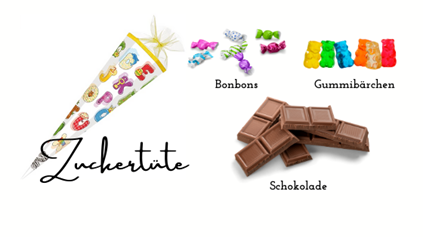Dear Germanee,
Are you wondering how to start learning German as a Beginner? First of all: Congratulations!
Being a beginner carries a lot of magic, surprises and – of course! – challenges innate itself.
Do you feel that tingling thrill in your tummy, right below your navel?
Feel it!
Embrace it!
Enjoy it!
But, never feel silly
The older we get, the rarer become our chances to experience ourself sitting in the beginner’s row. This may be a reason, why we don’t feel comfy at all at the beginning of our beginner’s trip. We just got so used to the fact that we’re proficient in everything we do, that at first it scares us a bit to leave our proficiency zone.
Especially learning a new language – OmG! That very moment, you start talking in German, you will sound hilarious. Yes, I promise. But, it doesn’t matter. It’ll be so much fun. I always enjoy my student’s first magic steps into their German-language-adventure. That highly focused expression on their faces by building up first sentences in German. That happy smile, when they realize, they understand short conversations and have something to say in that new language. Although, these weird combinations of letters taste kind of awkward on the tongue and feel sometimes even overwhelming as if someone puts you in a dress that doesn’t fit at all.
Making mistakes makes so much sense
Just don’t be afraid of mistakes. Make as many mistakes as you can at the beginning. As a beginner you’re entitled to do so. Mistakes won’t hurt and you can never fail. Isn’t that great news?! Remember, when you learned how to ride a bike. How painful it was, when you fell down. Or when you learned how to swim. How scary was that feeling of drowning and how disgusting was the taste of chloride or salty water in your mouth – and even worse in your nose!?!
In language learning, the contrary is the case, with every mistake you just grow and expand your knowledge by playing around with each new word or phrase you’ve learnt.
Becoming fluent in a language is never a sprint, but a marathon

What I know from my teaching experience, but also from myself as a student, many of us usually overestimate what we can learn in a short period of time while we equally underestimate our learning capacity in a long-term run. Would you agree? It happens too often that we get trapped in this unfortunate cycle of big excitement at the beginning, followed by impatience which finally leads us to disappointment and frustration, that let us give up way too soon. Please, dear Germanee, do not get me wrong here: It’s definitely not my intention to discourage you! In the contrary, I want to prepare and motivate you for your German-Language-Marathon.
I just had to look up on google, how long absolute beginners need to prepare themselves and train to run a marathon. Guess what? It takes up to two years by a weekly pensum of three to five training units.
I promise, if you’ll train your brain with German lessons three to five times a week, each for half an hour minimum, you’ll master that language marathon within one year. To make this very clear: I’m not saying that you have to run that fast. Depending on your goal, you can of course reach proficiency in German or any language within walking or even strolling pace. But then, you should still get yourself involved with the language on a regular basis, at least three times a week. I know, at the beginning it won’t even feel like an effort because everything is so new and exciting, especially since you’ll see a very fast progress. Use that magic to make your German studies a new habit. Later on, when your progress slows down a bit or maybe reaches a plateau – which is absolutely normal and happens in every learning process – it’ll be helpful if you’ve committed yourself before to a regular study practice. However, I’ll be here too, to cheer for you and more importantly to keep you on track – fueled, encouraged and inspired.
Learn your WHY
Do you know Simon Sinek’s book „Start with WHY“? I read it twice and find his thoughts very inspiring. Although, he actually addresses entrepreneurs and business people, I strongly believe, to ask ourselves about our WHY before we start doing something, can be mind-blowing; or at least a useful tool to clarify our motives and to keep us committed. If you would like to get some insights about my WHYs, just click here as I found them worth an additional post.

In German, the question word why means WARUM. But, it also has many synonyms: WIESO? WESHALB? WOZU? Just to name a few. I’d highly recommend you, dear Germanee, to take a few minutes and write down your WARUM. Why do you wanna learn German? / Warum willst du Deutsch lernen? Maybe it’ll work the best, if you’d write it on the first page of your note-book. I suppose, you already have one for all your new words, phrases and sentences in German, right?
If you’re a bit like me, you definitely have one. I’m in love with notebooks, preferably plain ones by Moleskin. If a shop offers Moleskin notebooks as „two for one“ or „three for two“ – that makes my day.
All right, now, since you know about my notebook obsession, let’s get back to your „Warum“-page. You could even write the question in German already: Warum will ich Deutsch lernen? / Why do I wanna learn German? It would be wonderful if you could share your WARUM with me. Please guys, write it in the comments below or send me an email! I’d love to know your WARUM. For you, knowing your WARUM will help you to stay motivated and focused. Probably, within your learning process, you might find many more aspects of your motives or your WARUM will even change. Therefore, leave some space on your WARUM-page. So you can easily add new reasons on that list at any time of your German language journey. Later on, you can enjoy re-reading your WARUMs. It’ll make you realize how much you’ve learned within that time span and on the other hand it’ll make you smile by reminding you of your first seat in the German-beginner’s-row. It’ll be like going through old photographs to provide you with sweet memories.
… apropos sweet …
Sweet treats for German beginners
In Germany, we have that sweet tradition of Zuckertüte or, depending on the region in Germany, also called Schultüte. It’s a large cornet of designed cardboard, filled with sweets and little presents and we give it to our children on their first day at school. Usually, the parents secretly craft these Zuckertüten for their kids. (When my daughter came to school, I made her one with a very cute horse since she loves horses so much.) The kids are told that these Zückertüten grow on a certain tree at the school yard and right when these cornets are big enough, it’s time for the children to start school. Actually, I think that’s a wonderful idea to sweeten up their way into their school-career and into learning.

Guess what – this one is for you, filled with Bonbons,
Gummibärchen and Schokolade, along with tons of German words and phrases.
Wishing you a pleasant and great start as the beginner of your very own German-language-adventure,
